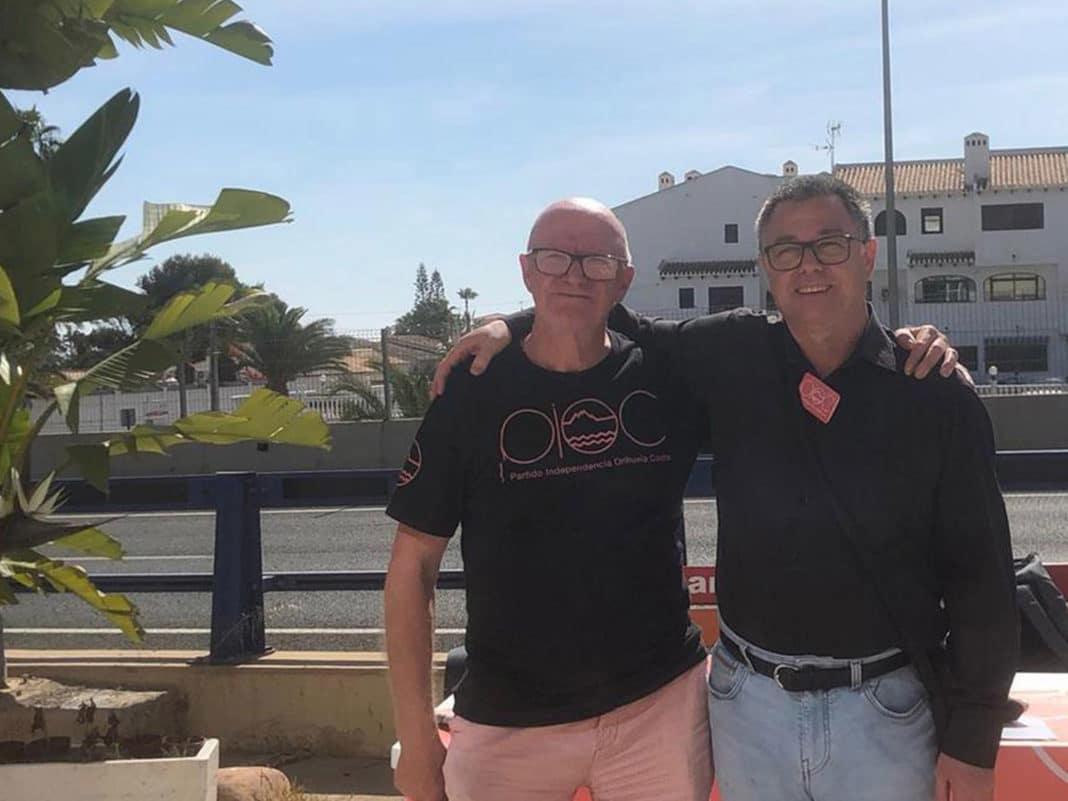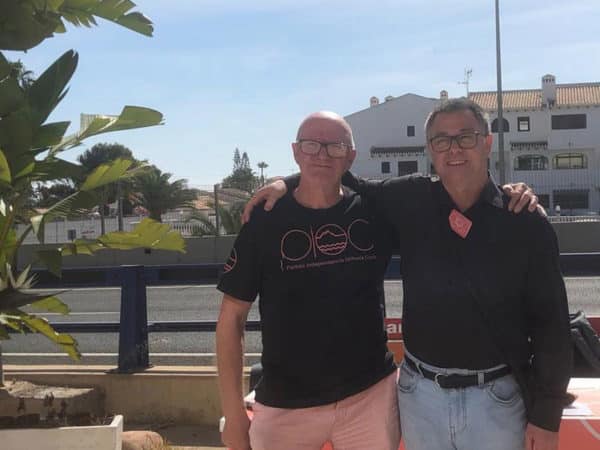Emerging from a neighbourhood association, PIOC, just 3 weeks away from 28M, the party led by the former member of ‘Vecinos por el Pilar’ Ramón Fusté, is determined to gain a foothold in the Municipal Council.
With it’s great social mix the region enjoys a rich multicultural identity but unfortunately, as has been demonstrated in election after election, it also suffers from a high voting abstention rate, the result of which is absolutely no representation in the Orihuela Municipal Council.
Until recently, CLARO has been the only party that has come anywhere close to gaining a footing, which it did eight years ago with one council seat, when it achieved 4.89% of the votes.
Unfortunately, now with a history of unsuccessful electoral pacts, CLARO is sadly in decline and as a result of a residents association, in the last 12 months or so, the Party for the Independence of Orihuela Costa (PIOC) has emerged much stronger. Its objective, contrary to CLARO, is no longer greater decentralisation, but complete divorce from a City Council that they feel is a distant and oblivious to the problems of the coast, a council that is incapable of solving such entrenched problems as cleaning and rubbish collection, the removal of garden and household waste, the appalling management of parks and gardens, and the inadequate maintenance of it’s roads.
“Our objective in the 28M Municipal Elections is to gain a foothold in the Municipal Council and by 2027 be strong enough to proceed with the segregation of the coast from the Orihuela City Council,” says the leader, Ramon Fuste. “Other parties have to try to convince people to vote for them. We do not need to convince anyone of disgusting conditions in which they live”, which he says will signpost coastal voters toward PIOC.
Together with former members of CLARO, including Peter Houghton and Cilla Cromie, number two and three on the PIOC list, they have set out to unite all the ideologies and nationalities present on the Oriolano coast with the same objective: independence.
Fusté, who has lived in Campoamor since the summer of 1997, is of Catalan origin and, before joining this political adventure, he was one of those who established the ‘Neighbors for El Pilar’ party in Pilar de la Horadada which managed to get a seat in the Council. Unfortunately it was occupied by José Francisco Albaladejo, so Fusté missed out.
For the leader of this new formation, with a determination to become dominant on the coast, the goal of independence is nothing utopian, but rather something that will be achieved sooner rather than later due to demographic dynamics. “The coast will continue to grow in population while the city decreases. In a matter of just a few years we will have a larger population and, therefore, the strength to separate from Orihuela City, almost 40 kilometres distant.
This will provide the opportunity for the Orihuela Costa and it’s residents to refocus their politics, following many years of abandonment by the distorted government of Orihuela City, where the politicians of all parties have been intent only on depleting the resources and land of the coast, using the area as a ‘cash cow’ to finance projects in the urban centre.
“It is not necessary to build more houses and urbanisations. What will we do when there is no more land available, will we build a school in the middle of a park”?
They are also outraged by the mismanagement of the beaches. Indeed, a group of residents demonstrated only last Tuesday about their deterioration, the fragmented coastal walkway and the closure of the beach bars, seriously compromising the 11 blue flag awards.
Even so, Fusté insists, what needs to be changed is the productive model of the coast so that it is not so dependent on tourism. “You have to build an organisation that is capable of creating quality work for coastal residents and their children, so that they are not being condemned to earning the minimum wage, like the majority of employees on the coast.”
Despite the fact that this legislature has seen the establishment of some infrastructures such as the emergency centre and the Urban Waste work centre, work on which started last week, for Fusté they are “minimal progress and unworthy of an area, Orihuela Costa, with 50,000 inhabitants , as indicated by the consumption of electricity and water”.
Thus, he reiterated the demand for a cultural centre, a library, its own cemetery, the expansion of schools, many of them full to capacity like Los Dolses, and, he also wants far better transport links and a railway station. “It does not make sense that Orihuela city has an AVE stop and that the coast between Alicante and Cartagena is not supported by anything other than an occasional bus.”






